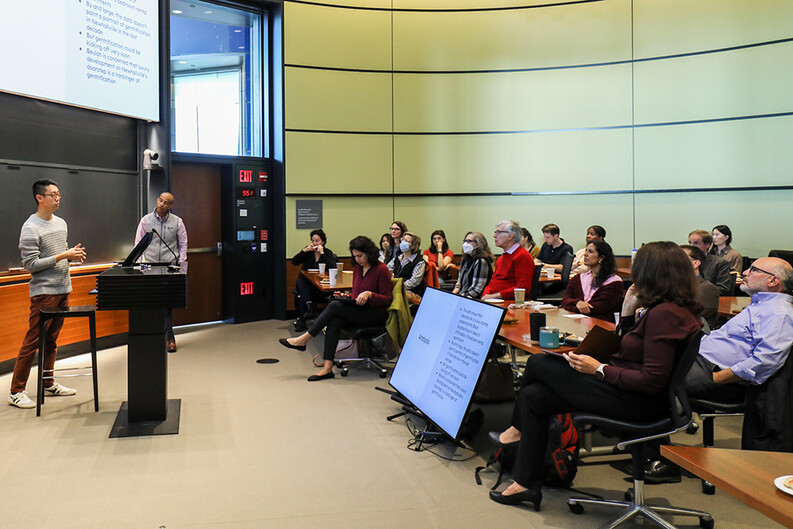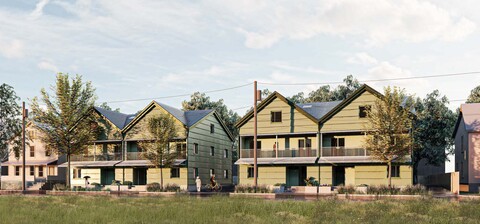Housing Course Joining Law, Architecture, and Business Wins Design Education Award

A Yale course on affordable housing that is about to yield eight new homes in New Haven is being held up as an example of design education.
The Association of Collegiate Schools of Architecture awarded Housing Connecticut: Designing Healthy and Sustainable Neighborhoods — which joined students and faculty from Yale Law School, Yale School of Architecture, and Yale School of Management — its AIA/ACSA Housing Design Education Award4.
The award5, presented with the American Institute of Architects, recognizes the importance of good education in housing design to produce architects ready for practice in a wide range of areas and able to be capable leaders and contributors to their communities.
The Yale course pairs cross-disciplinary teams of students with local nonprofit housing developers to produce proposals for affordable housing. Projects are eligible for funding from the state of Connecticut, which selects the nonprofits as clients. State officials also give students feedback on their proposals throughout the course.
“This award is an honor and a testament to the value of teaching architecture, law, and business students to collaborate with each other in service of a mission — in this case, livable, safe, accessible, affordable housing,” said Clinical Professor of Law Anika Singh Lemar, who teaches the course with Yale School of Architecture’s Andrei Harwell, Alan Plattus and Elise Barker Limon, and with Yale School of Management’s Kate Cooney.
This award is an honor and a testament to the value of teaching architecture, law, and business students to collaborate with each other in service of a mission — in this case, livable, safe, accessible, affordable housing.”
—Clinical Professor of Law Anika Singh Lemar
Designed as a three-year pilot with funding from Yale Law School’s SNF Fund for the Integration of Theory and Practice, the course was first offered in the fall of 20226. Students that year worked with three New Haven nonprofits, Neighborhood Housing Services, Beulah Land Development Corporation, and NeighborWorks New Horizons.
One of the proposals from that round received city approvals in the fall to start construction. The project will add four new two-family houses to New Haven’s Newhallville neighborhood7 — eight new homes, for renters and homeowners, less than two miles from Yale.
Singh Lemar noted that it’s “unheard of” to go from identifying a building site to receiving approvals in just one year.
“That the project moved so quickly from concept to approvals is a testament to the students’ focus on legal and financial feasibility alongside innovative design,” Singh Lemar said.

Before meeting their community partners, students had a boot camp-style introduction in affordable housing design and development. In five weeks, they got an overview of topics including local urban history, GIS mapping, data analysis, zoning, building codes, and community engagement. The course uses teaching methods from all three disciplines, exposing students to classroom practices outside their area of study. Students experienced clinical rounds from law, studio critiques from architecture, and case studies from business.
“Teaching this course has opened my eyes to the importance of interdisciplinary graduate education and the barriers, from teaching modalities to scheduling,” Singh Lemar said.
Natalie Smith ’23, a student from the course’s first round, agreed that working across disciplines was invaluable.
“As a third-year law student, this was the first course I’ve taken that involved working with a team of peers across schools, and will inform how I work with other professionals outside of the legal field in the future,” Smith wrote at the time.
The course has since been offered again with students working with local partners in two other Connecticut communities, Wallingford and Middletown.


